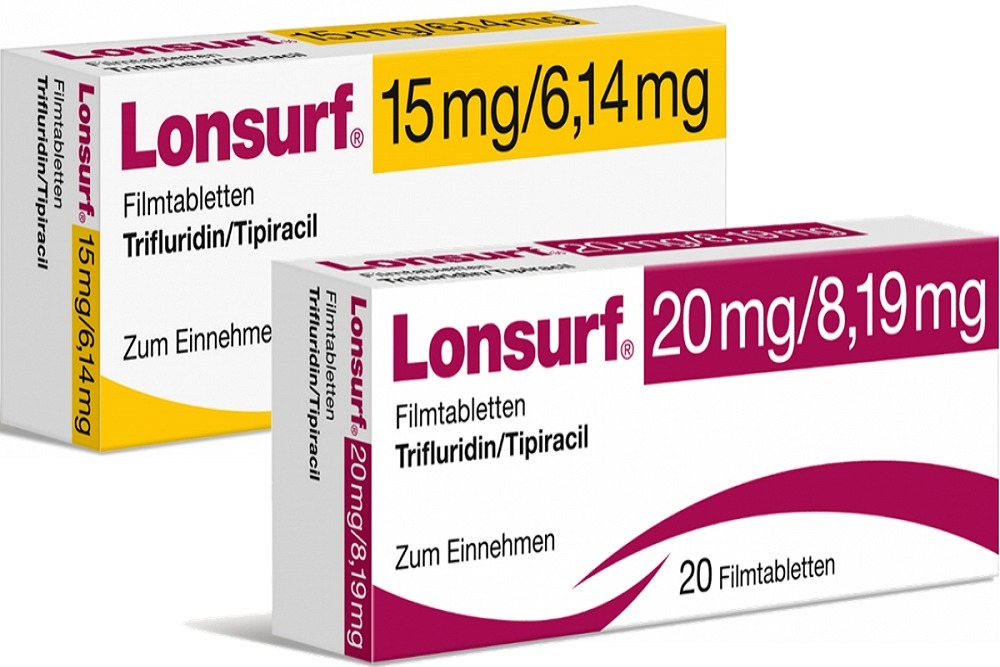Trifluridine/tipiracil tablets (LONSURF, Taiho Pharmaceutical Co., Ltd.) were approved by the Food and Drug Administration on February 22, 2019 for adult patients with metastatic gastric or gastroesophageal junction (GEJ) adenocarcinoma previously treated with at least two prior line adenocarcinomas, a fixed combination of trifluridine, a nucleoside metabolic inhibitor, and tipiracil, a thymidine phosphorylase inhibitor
TAGS (NCT02500043), an international, randomized, double-blind, placebo-controlled trial, was accepted in 507 patients with metastatic gastric or GEJ adenocarcinoma who had previously undergone at least two previous chemotherapy lines of care. Patients were randomized 2:1 to receive Lonsurf (n=337) 35 mg/m2 orally twice daily on Days 1-5 and 8-12 of each 28-day cycle with best supportive care (BSC) or matching placebo (n=170) with BSC until disease progression or unacceptable toxicity.
The median average survival for patients treated with Lonsurf was 5.7 months (4.8, 6.2) and 3.6 months (3.1, 4.1) for those treated with placebo (hazard ratio: 0.69; 95% CI: 0.56, 0.85; p=0.0006). In patients randomized to the Lonsurf arm (hazard ratio 0.56; 95 percent CI: 0.46, 0.68; p<0.0001), progression-free survival was also longer.
In the TAGS report, neutropenia, anemia, nausea, reduced appetite, thrombocytopenia, vomiting and diarrhea were the most common adverse reactions or laboratory anomalies (approximately 10% incidence) in patients treated with Lonsurf, occurring at a higher rate than in patients treated with placebo.
The prescribed dosage and schedule for Lonsurf is 35 mg/m2/dose orally twice daily with food for each 28-day period on Days 1 through 5 and Days 8 through 12.
View full prescribing information for LONSURF.
FDA granted this application priority review and orphan drug designation. A description of FDA expedited programs is in the Guidance for Industry: Expedited Programs for Serious Conditions-Drugs and Biologics.
Healthcare professionals should report all serious adverse events suspected to be associated with the use of any medicine and device to FDA’s MedWatch Reporting System or by calling 1-800-FDA-1088.


